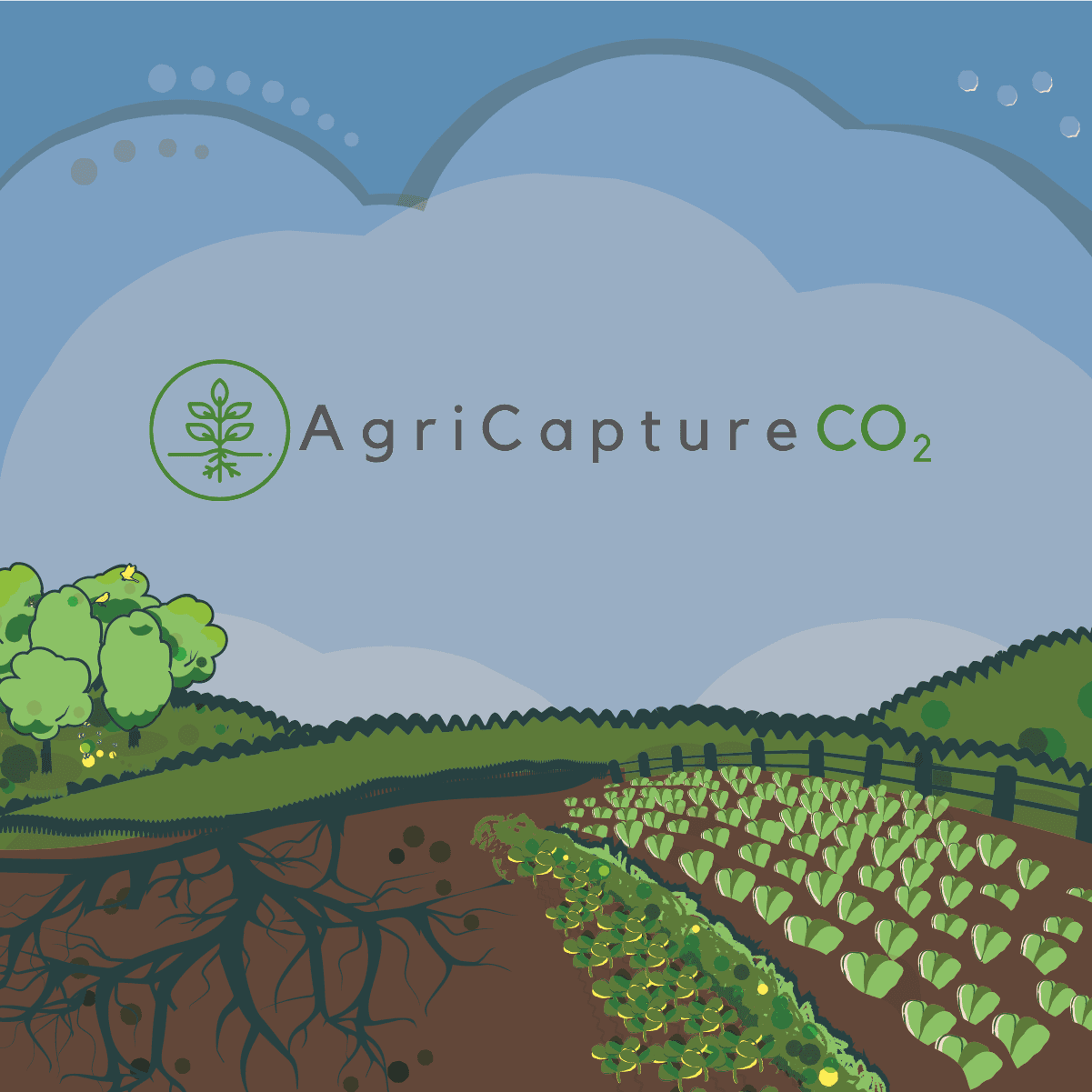

Climate change is one the biggest challenges we face as a society: it is also one of the greatest risks to the agri-food sector, and farming in particular. While agriculture can act as a source of greenhouse gas emissions, it can and must also play a vital role in acting as one of the solutions to climate change.
The EU Horizon 2020 ClienFarms project ClieNFarms – Climate Neutral Farms aims to support the transition to climate-neutral and climate-resilient European farming by scaling up systemic, locally relevant solutions at a farm level.
This will be achieved interactively through integrating and improving existing solutions to achieve economically viable business models of farming systems through the involvement of farmers, extension services, agri-food business, policymakers, financal services and citizens.
















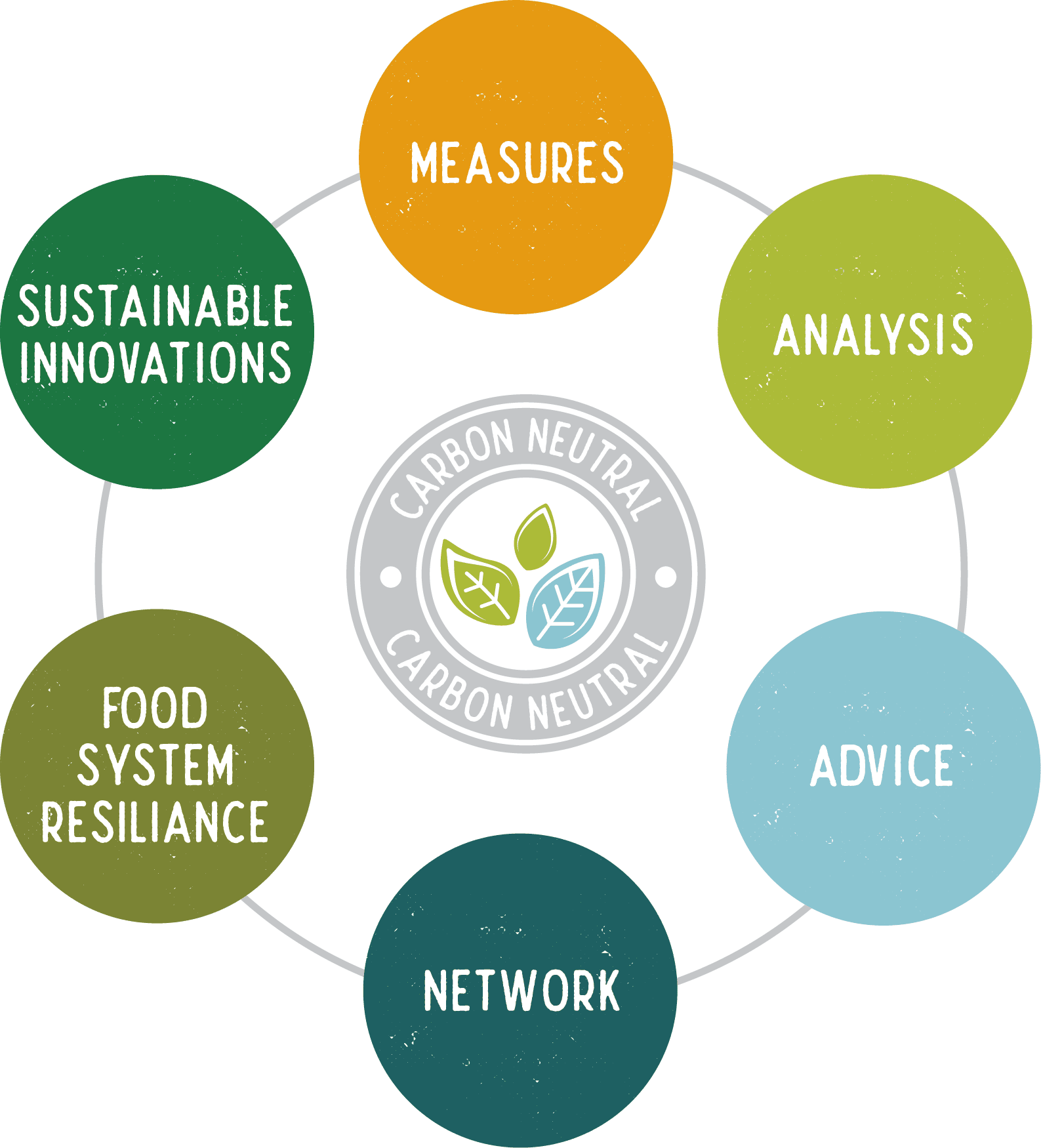

The core concept of the project is a demonstration approach called the Innovative Systemic Solution Space (I3S). Each I3S across the European consortium is focussed on a different element of the agricultural supply chain; the Allerton Project is working alongside Nestlé to help decarbonise its cereal supply chain in the East of England by working with farmers to help adopt more sustainable production methods.
The Allerton Project will act as the main demonstration farm in the I3S, with a small number of lead commercial farms and larger number of outreach farms beneath, clustered into distinct ‘archetypes’ to best group similar farm types together by factors such as rotation, soil type or tillage regime. We aim to facilitate on-farm baselining of natural capital resources and soil data, and dissemination of best practice to enable effective knowledge-exchange between participating farmers in the I3S farm network.
Ultimately, ClieNFarms will lead to the creation of a carbon credit trading platform for ‘insetting’ of quantifiable decarbonisation within the cereal supply chain, avoiding the need for external ‘offsets’.
The project is supported by the existing Landscape Enterprise Networks (LENs) initiative Landscape Enterprise Networks – A 3Keel initiative to support resilient landscapes., pioneered by GWCT Allerton Project, Nestlé and 3Keel in 2017. LENs is a system for organising the buying and selling of nature based solutions, and has been active in the East of England since 2020, purchasing natural capital outcomes from farmers in areas such as clean water, healthy soil and increased biodiversity.


Meet our farmers
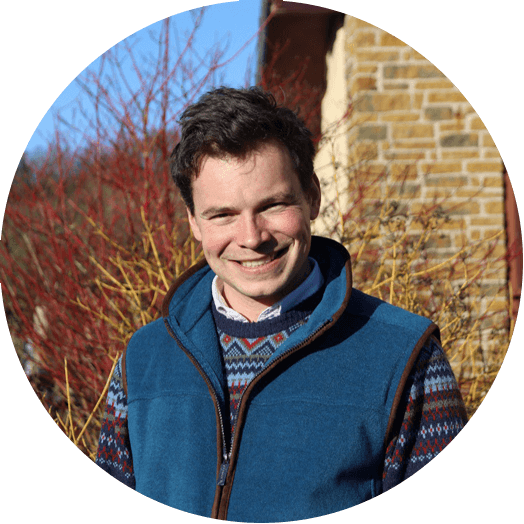

Toby Simpson
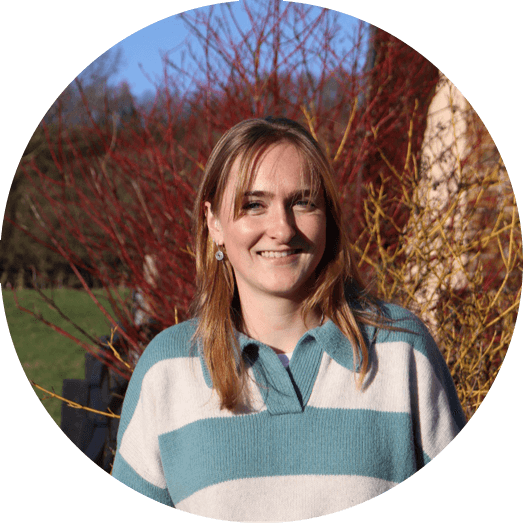

Rosie Davis
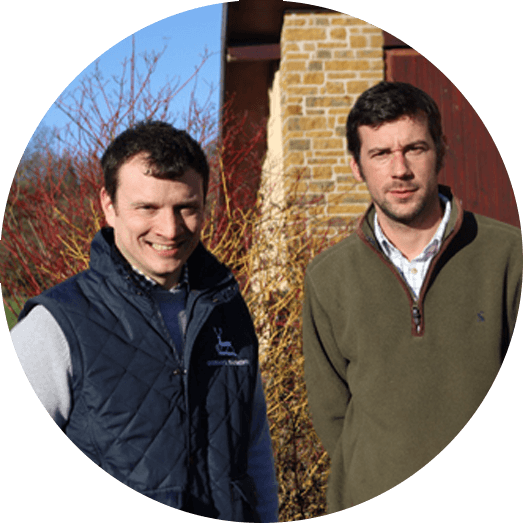

Ben and James
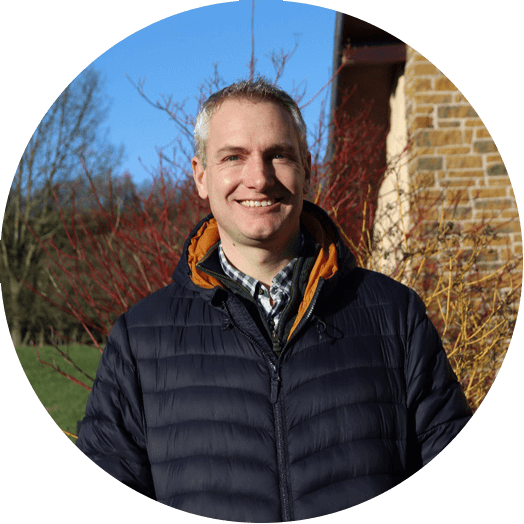

Tom Jewers
Toby Simpson
Stilton, Cambridgeshire
Farming 700ha of arable land outside of Stilton in Cambridgeshire. Toby is a 2022 Nuffield Scholar focussing his research into cover, catch and companion cropping within an arable rotation. Highly focussed on soil health and continual improvement Toby trials numerous projects on the farm, to fit into a thriving farming system. Working with BASE UK and other industry bodies Toby is a passionate regenerative farmer and we look forward to seeing where the Climate Neutral Farms project takes him.
Rosie Davis
Courteenhall
Rosie Davis is the land Agent at Courteenhall, Courteenhall is a progressive farm focussing on arable production within 730ha of the estate, with a vast area of parkland the estate also runs a herd of traditional Herefords, which aim to boost biodiversity across these areas. The arable operation has recently moved to a two-year grass ley followed by a wheat crop, working closely with their agronomists to understand benefits. Committed to farming sustainably the estate has a countryside stewardship scheme with 15% of the farm being a pollen and nectar mix/wild bird seed mix. The estate is also part of the Tove valley farm cluster where they can achieve further benefits beyond the countryside stewardship, focussing on elements such as conserving farmland birds and improving water quality.
Ben and James
Beccleugh Estate, Northamptonshire
Working the Beccleugh estate in Northamptonshire the dynamic due consist of Ben who manages the farm and James who owns Conant farming a contracting business across Rutland and Northamptonshire. The farm has a large arable operation of 1570ha as well as a large number of commercial ewes and cattle. Ben runs a host of on farm trials to understand how they can better manage the land to improve soil health, increase yield and minimise requirements on inputs. The farm also runs a higher and a mid tier agri environment scheme aswell as working with the local council in Biodiversity offsetting.
Tom Jewers
Suffolk
Farming 395ha in Suffolk, Tom is focussed on understanding key issues and how best to resolve them. Working closely with Hutchinsons and the small robot company Tom is looking at ways to reduce reliance on Nitrogen whilst ensuring continual added value. Running trials on Nitrogen use efficiency and polycropping, all whilst providing habitats and resources for wildlife.
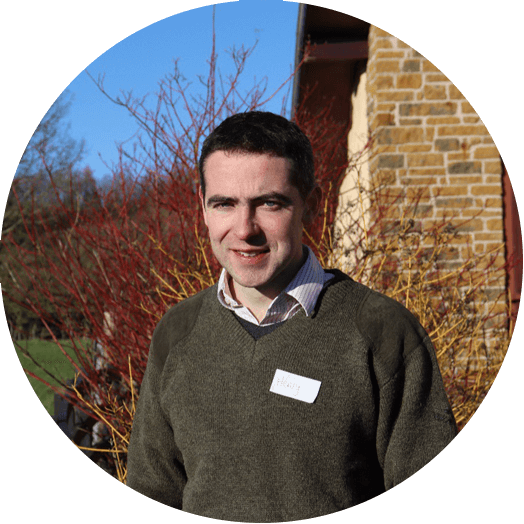

Henry Reynolds
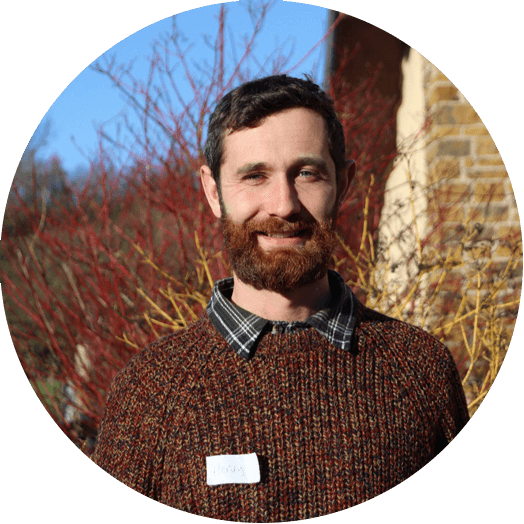

Henry Tyrell
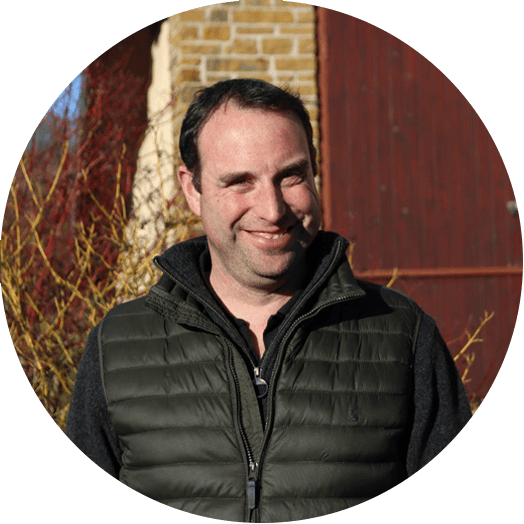

Richard Ling
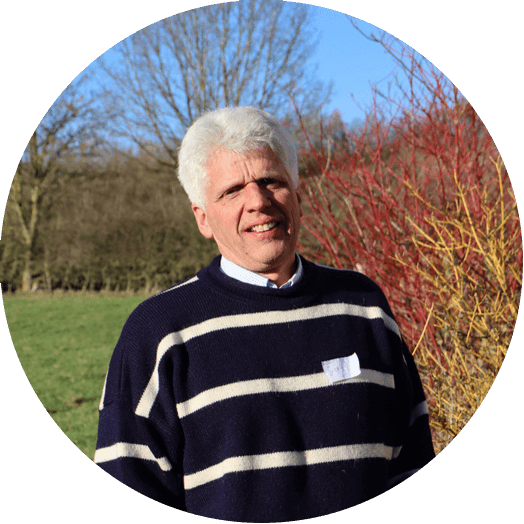

Geert Willemson
Henry Reynolds
Northamptonshire
Farming in Northamptonshire, Henry is focussed on utilising regenerative farming practices to drive forward the farm, utilising minimal tillage since the early 2000s they understand the practical application and the positives, including reduced fuel consumption. Continuing to monitor the soil Henry is keen to roll out management practices as and when they are needed on the 200ha arable operation. More recently Henry is benchmarking his carbon footprint using The Cool Farm tool with his Agronomists and his local farming network.
Henry Tyrell
Northamptonshire
Henry has a mixed farming operation on the home farm in Northamptonshire, running a Suckler herd, breeding ewes and producing their own beef and lamb boxes. Henrys 200ha of arable land is farmed with a high attention to ‘treatment when needed’, using a subsoiler and minimum tillage as he sees fit. With a keen interest in bio stimulants Henry has run a few unofficial trials at home and is understanding their benefit.
Richard Ling
Suffolk
Finishing his final year as an AHDB Monitor farm this year Richard has a host of projects on farm. Farming 400ha in Suffolk the management follows limited cultivation practices. Most recently Richard has focussed on reducing synthetic nitrogen fertilisers and running trials for an alternative low emission fertiliser. Increasing the resilience of the farm is vital, Richard is especially interested in the detail and highlights a list of other areas he would like to understand more about, such as grain analysis furthering the knowledge from soil samples.
Geert Willemson
Suffolk
Our organic farmer within the group, Geert farms in Suffolk. Geert was quoted saying that his Organic conversion was like learning to farm all over again. Moving focus away from inputs and continually focussing on farming with nature. Managing the rotation there are learnings from the 340ha Organic side (45%) which can be utilised on the conventional side of the farm. Geert is interested in numerous climate neutral principles on farm and will be a great addition to the knowledge exchange of the group with his Organic focus.

